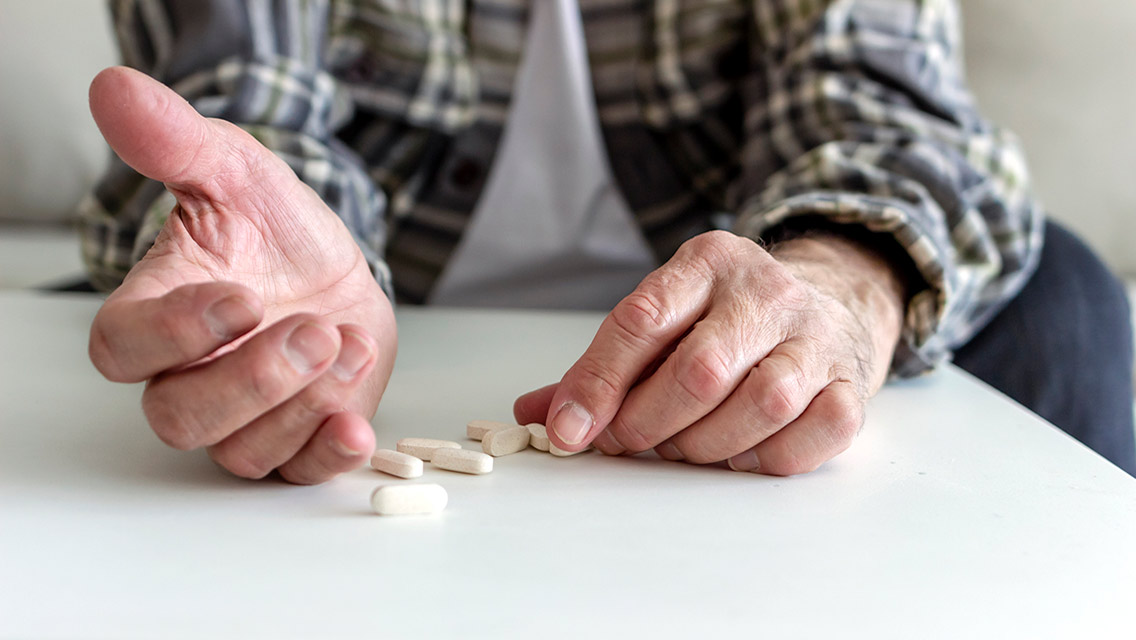I read last week about a study suggesting that women need to exercise only about half as much as men to gain the same life-extending benefits. It seems guys need to work harder due to the demands of our greater muscle and lean body mass while the female cardiovascular system tends to use energy more efficiently due to the higher density of its capillaries. Or something to that effect.
I could delve into these differences more deeply, but I suspect some of my male counterparts may now require the kind of reassurance that only the longevity industry can provide. So here it is: You could just take a pill.
Which brings me to another study that caught my eye last week. It came from the Max Planck Institute for Biology of Ageing, where Sebastian Grönke, PhD, and his team launched the latest salvo in the surprisingly robust campaign to establish an obscure generic drug as the ultimate antiaging solution.
The drug is rapamycin, which the Food and Drug Administration (FDA) approved in 1999 to prevent the rejection of transplanted organs. But a series of studies over the past 15 years have shown it extends the lifespan of all the usual suspects: yeast, mice, flies, and worms. Grönke’s team set out to explain the mechanism behind the drug’s life-extending capabilities, focusing on a particular protein and its effect on a specific cellular process.
“We know that rapamycin extends lifespan via two mechanisms: increased autophagy and decreased activity of a protein called S6K,” he explains. “It has been shown that mice with altered S6K live longer. But the mechanism by which S6K extends lifespan is unclear.”
So, the researchers suppressed the protein’s activity in some elderly flies, which apparently cooled inflammation, boosting their immune function and allowing them to extend their lifespan beyond the normal 15 to 25 days. The results build upon earlier research, including a 2009 study that linked rapamycin to a 14 percent increase in lifespan among elderly mice; a 2014 report showing that older adults who took a similar drug exhibited a stronger immune response to the flu vaccine; and a recent survey that found that those who took rapamycin reported a better quality of life overall than a control group.
That research — and some persistent online marketing — have pushed rapamycin into the mainstream as a practical solution to aging. Some two dozen medical practices now prescribe it for that purpose, according to a Washington Post survey. One New York physician claims to have treated about 1,500 patients with the drug in the past seven years, calling it “the most important drug in the history of medicine.”
That’s not to say the drug’s popularity hasn’t attracted some skeptics. A 2022 study debunked the earlier rapamycin research, arguing that using “lifespan as an indirect measure of aging” is a flawed approach. And the author of the 2014 paper on flu response, Joan Mannick, MD, chief executive of Tornado Therapeutics, admits she’s not happy that her research has been hijacked to support using the drug as an antiaging panacea. “I don’t know yet what’s the right dose, what’s the right duration, what are the risks, what are the benefits,” she tells the Post. “I think we’ll be able to get there, but we aren’t there yet.”
Those aren’t the only questions that will likely prevent the FDA from approving the drug for the expressed purpose of life extension. The agency does not consider aging a disease and, even if it did, rapamycin is a generic drug: There’s no financial incentive for a company to run the kind of large clinical trials on its lifespan-expanding benefits that the FDA requires for approval.
Even longevity disciples like Eric Verdin, MD, CEO of the Buck Institute for Research on Aging, may need more evidence before they’ll feel comfortable prescribing the drug. “We should not as a field recommend use on people,” he says, arguing that it’s no substitute for a regular exercise regimen and a healthy diet. “People going on it, using it as a substitute for a healthy lifestyle, it’s a bridge too far for me.”
And yet, he takes the drug himself. “I’m doing everything I can to try to maximize my longevity,” he notes, while admitting he hasn’t felt any younger since he began taking the pills.
He might consider ramping up his workouts.





This Post Has 0 Comments